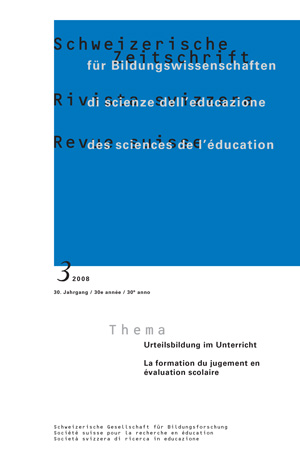Professional judgement in assessment: a cognitive act and a situated social practice
DOI:
https://doi.org/10.24452/sjer.30.3.4798Keywords:
Professional judgement, marking, summative assessment, predictive assessment, primary schoolAbstract
This article examines the characteristics of teachers’ professional judgement in assessment, conceptualised as a cognitive process and as a social practice linked to several contexts. The multireferentiality of professional judgement in assessment is described and is shown to draw upon frameworks and references of different kinds. The article presents a study of the summative and predictive assessment procedures carried out by 10 sixth-grade teachers in Geneva. The results describe the procedures used by the teachers to determine the marks registered in the school report card and the assessment adjustments undertaken with respect to particular student situations. The social and ethical dimensions of professional judgement in assessment are emphasized. A four point model is proposed as a basis for training activities and collegial collaborations that can develop the coherence and rigor of teachers’ professional judgement and thereby limit the biases affection their grading practices.
Downloads
Downloads
Published
Issue
Section
License

This work is licensed under a Creative Commons Attribution 4.0 International License.



